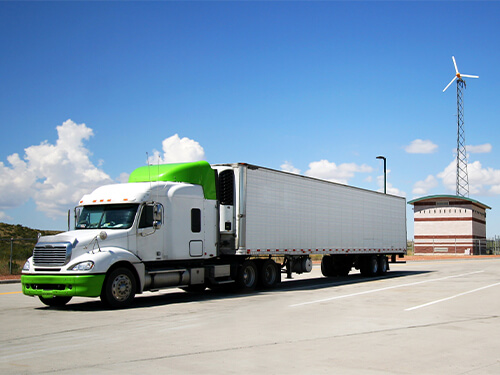
Carbon-Neutral & Sustainable Freight
Advancing vehicle decarbonization throughout the supply chain to decrease air emissions for improved sustainability and quality of life.
The transportation sector is a significant contributor to planet-warming emissions. Additionally, emissions from vehicles have been known to cause significant environmental and health impacts, especially to disadvantaged communities near heavily trafficked freight corridors. The coalition seeks to address these issues, with a special emphasis on the critical freight corridors of I-64, I-77, I-81, and I-95.
Our region is positioned to be a global leader in next-generation clean transportation infrastructure systems. These systems will radically reduce carbon emissions, accelerate access to charging and alternative fuel stations across industries, and create workforce opportunities in emerging fields.
Through this effort, the coalition will work towards:
- Accelerating the deployment of electric vehicle stations for short-haul delivery light vehicles through the VDOT NEVI program along the I-64, I-77, I-81, and I-95 corridors.
- Developing affordable and accessible medium- and heavy-vehicle charging and fueling station hubs along important regional freight corridors to accelerate fleet electrification and conversion to alternative fuels.
- Scaling up implementation of charging and alternative fueling stations along the corridor in response to light, medium, and heavy vehicles’ conversion to alternative fueling sources.
In addition to infrastructure, we will accelerate AV2X communication networks. We will spearhead the installation and operation of a ubiquitous V2X communications network along the corridor. The communication of accurate fueling infrastructure information will help accelerate adoption and optimize route stops while minimizing down time. Through this project, we will lay the foundation for a carbon-neutral supply chain with the initial deployment of hydrogen-fueled and electric heavy vehicles along the port-to-hub highway corridor.
